Who knew the world’s best kept beauty secret was in your garden all along? Geranium essential oil has become a popular natural remedy for promoting shiny hair and brighter, younger looking skin. Some studies suggest geranium oil may even be powerful enough to get rid of clogged pores, remove excess oil and heal inflammatory skin conditions such as eczema, acne and psoriasis (1).
With all of these renowned health benefits, is geranium oil worth adding to your beauty routine? Let’s take a closer look at what geranium essential oil is, why it can improve your skin, and how to use it.
What Is Geranium Essential Oil?
Geranium essential oil comes from the geranium flower. The oil is made by distilling the green parts of the plant, especially the leaves. Geranium oil’s scent is described as floral and sweet, with a slightly earthy aroma.
Love turmeric recipes?
Add power-packed anti-inflammatories to every meal with these FREE turmeric recipes!
[tweet_quote] Geranium oil is floral and sweet, with an earthy aroma. [/tweet_quote]
Geranium oil is not to be confused with rose geranium oil. While they both have similar properties and health benefits and stem from the same flower, rose geranium essential oil has a stronger floral scent, which is why it’s commonly used in the perfume and cosmetic industry. Rose geranium oil is also said to have stronger mood and hormone balancing properties, although there’s no scientific research to back up this claim.
Geranium oil goes by the name Pelargonium Graveolens, while rose geranium oil is called Pelargonium Roseum. This is the easiest way to distinguish the oils from one another, which is important if you’re looking for specific health benefits.
Geranium Oil Benefits for the Skin
Geranium oil has anti-inflammatory, cicatrisant, antiseptic and antibacterial properties, which is why it was used in ancient herbal remedies for treating wounds, cuts and injuries. In addition to healing scrapes and scratches, these properties are exactly why geranium essential oil can help beautify the skin.
Here are the most effective ways to use geranium oil as a natural alternative to commercial skin care products.
Natural Acne Treatment
Geranium oil could be the ultimate holistic zit zapper.
While acne can have many causes, one of the biggest culprits of breakouts is bacteria. The bacteria that naturally live on your skin can get trapped in your pores and cause pimples, blackheads and whiteheads when mixed with sebum, which is the oil your skin produces (2).
Since geranium oil has antibacterial and antiseptic properties, when applied topically, it may be helpful for preventing the bacteria on your skin from entering your pores and causing breakouts (3). [tweet_quote] Geranium oil is antibacterial and an antiseptic, making it the ultimate holistic zip zapper.[/tweet_quote]
Geranium oil may also help prevent breakouts by regulating your skin’s sebum production. While there’s limited research on how geranium oil corrects oily skin, it’s suggested that applying oil to your skin can “trick” it into thinking it’s produced enough sebum—and thus reduce the overall amount of oil it produces.
Lastly, geranium oil may help regulate imbalanced hormones, which are another common acne trigger. In particular, the hormones estrogen, progesterone and insulin are linked to acne flare-ups (4)(5).
How to Use:
To help treat breakouts with geranium oil, simply place a few drops onto a Q-tip or cotton ball and use as a spot treatment on the affected area after cleansing.
To prevent breakouts, you can add a few drops of geranium essential oil to your moisturizer, or apply directly to all areas of your skin with a cotton ball.
Geranium oil can contribute to hormone balance when it’s absorbed through your skin, and it can also be added to bathwater. A few drops of geranium oil can also be mixed with coconut oil to make a natural, chemical-free body lotion.
Preventing Scars
Perhaps the only thing more frustrating than an angry acne flare-up are the red marks and dark spots pimples leave behind.
As previously mentioned, geranium oil has been used therapeutically to speed up the healing of wounds due to its cicatrisant properties. This may also help heal the skin after a gnarly breakout and prevent scars from forming.
How to Use:
Similar to a spot treatment, a drop or two of geranium oil can be applied to the skin using a Q-tip, or massaged onto the affected area with clean hands.
Minimize Wrinkles
The astringent properties of geranium essential oil are said to help tighten the skin, which can help minimize the appearance of wrinkles. It also contains fatty acids, the nutrient needed to help build healthy skin cells (6)(7). The healthier your skin cells are, the younger your skin will look.
How to Use:
Add a few drops of geranium essential oil to your moisturizer and gently massage into skin. Apply daily.
DIY Geranium Oil Glowing Skin Face Mask
While geranium essential oil is useful for healing skin conditions, it can be used regularly in your beauty routine to enhance the appearance of your skin at any time. An easy way to add more of this oil to your skincare regime is by including it in your favorite homemade facial recipes.
Here’s one of my favorite geranium oil face mask recipes that helps remove impurities, unclogs pores, and leaves the skin feeling silky, smooth and refreshed.
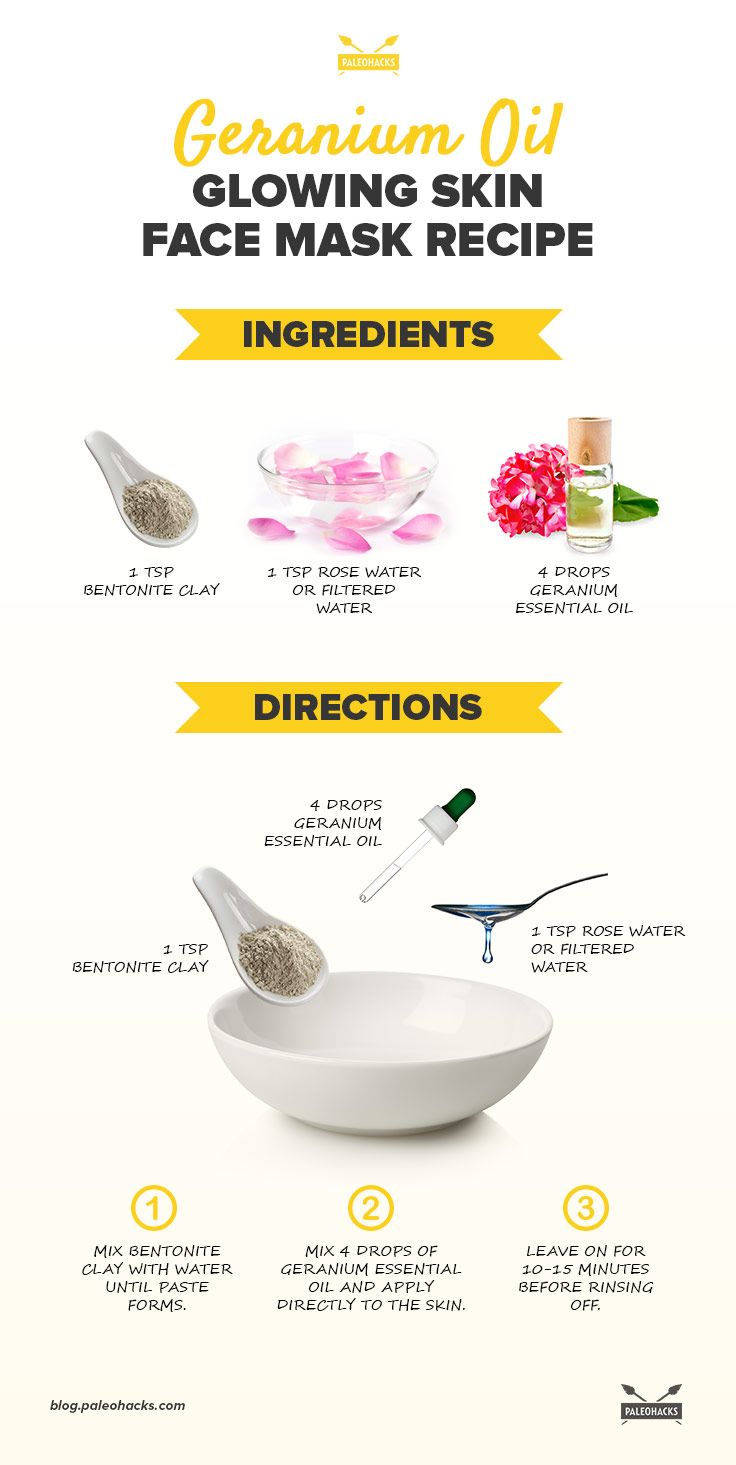
While geranium oil offers numerous health benefits to the skin, bentonite clay is a natural detoxifier that helps remove blemish and wrinkle-promoting toxins from the skin. Since geranium essential oil is also a natural stress and anxiety reliever, using it for a facial could be your new favorite way to relax after a long day.
Ingredients
- 1 t Bentonite clay
- 1 t rose water or filtered water
- 4 drops geranium essential oil
How to Make It
- In a small bowl, mix bentonite clay with water until a paste starts to form. If you’d like, you can add a few extra splashes of water to reach your desired consistency.
- Mix 4 drops of geranium essential oil and apply directly to the skin.
- Allow to dry and leave on for 10-15 minutes before rinsing off.
Bentonite clay, rose water and geranium essential oil are available at most natural health stores.
Cautions When Using Geranium Oil
One of the most important things to keep in mind when choosing geranium essential oil is that quality matters. Since pure geranium essential oil is relatively expensive (ranging between $40.00-$60.00 per bottle), many low-grade, inexpensive versions of geranium essential oil will be mixed with other essential oils and artificial ingredients.
[tweet_quote] Pure geranium oil may be expensive, but it’s important to buy the kind without additives. [/tweet_quote]
If you’re looking to receive the therapeutic benefits of geranium essential oil, choose a version that’s guaranteed to be pure. While price is a good indicator of a quality essential oil, also be sure to check the ingredients list for additives.
While geranium essential oil has no serious known side effects, it’s always best to do a quick patch test before applying it directly to your skin to make sure you don’t react. Geranium oil is said to be mild, but if you have sensitive skin, you may want to mix a few drops with a carrier oil before applying, such as coconut or jojoba oil.
Since the safety of essential oils isn’t widely studied, it’s best to exercise caution if you’re pregnant, nursing or taking prescription medications. Always check with a licensed healthcare practitioner before introducing a new essential oil to your routine, and keep essential oils out of reach of small children.
(You’ll Also Love: 7 Rosehip Oil Benefits for Amazing Skin)


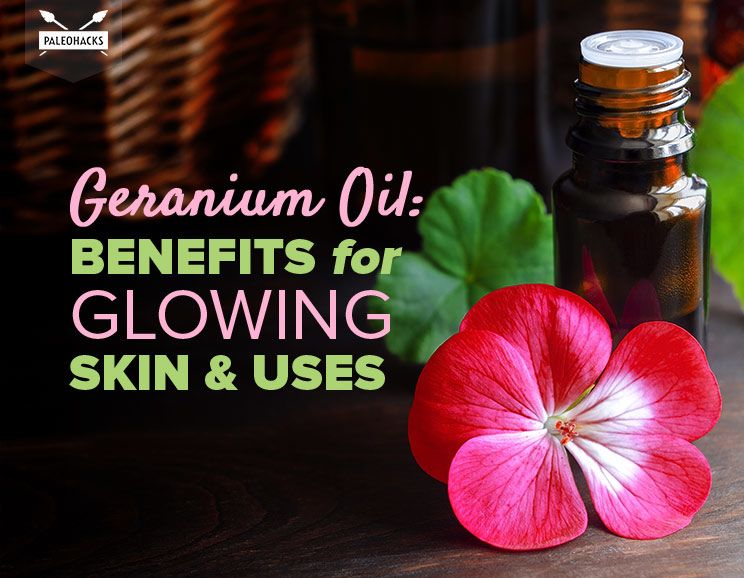
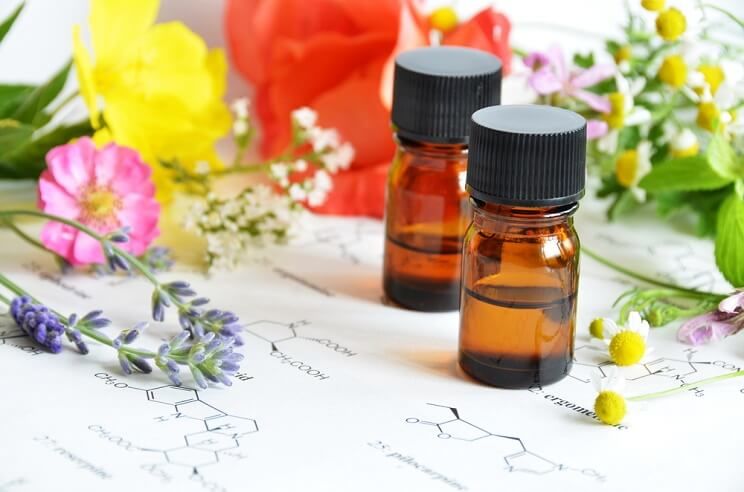

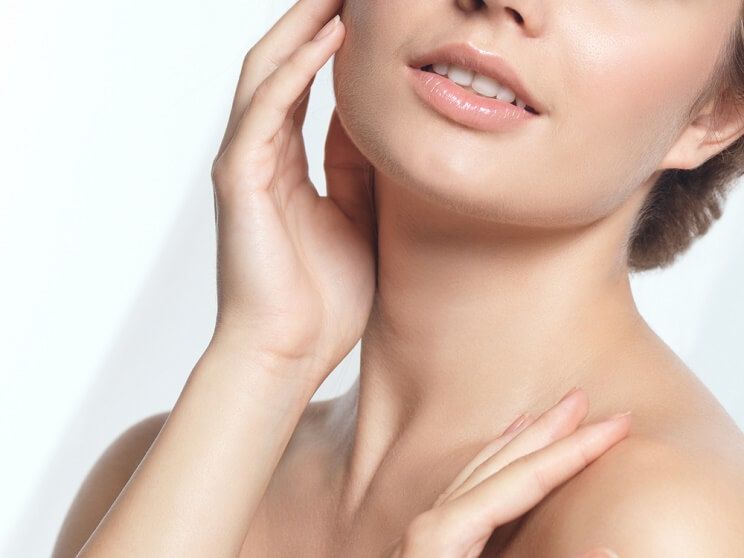
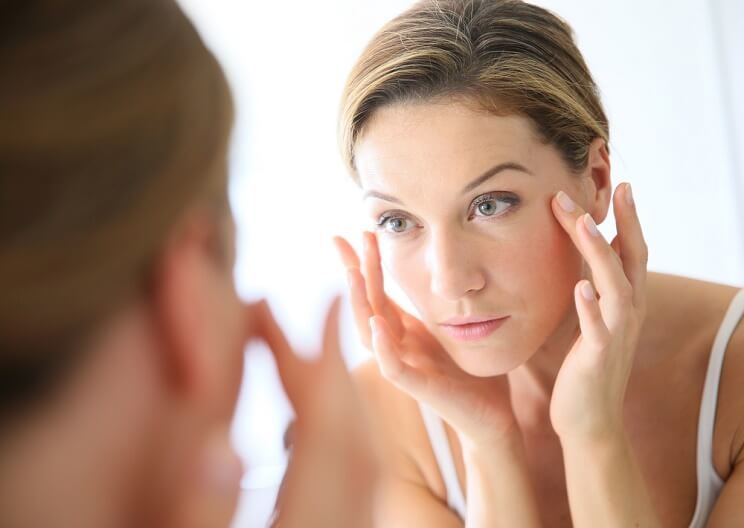
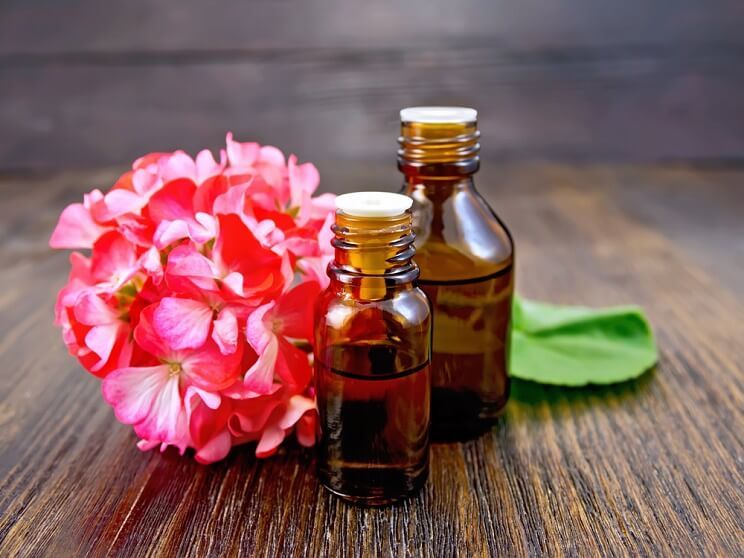
 Awakening Matcha Smoothie Bowl Recipe
Awakening Matcha Smoothie Bowl Recipe
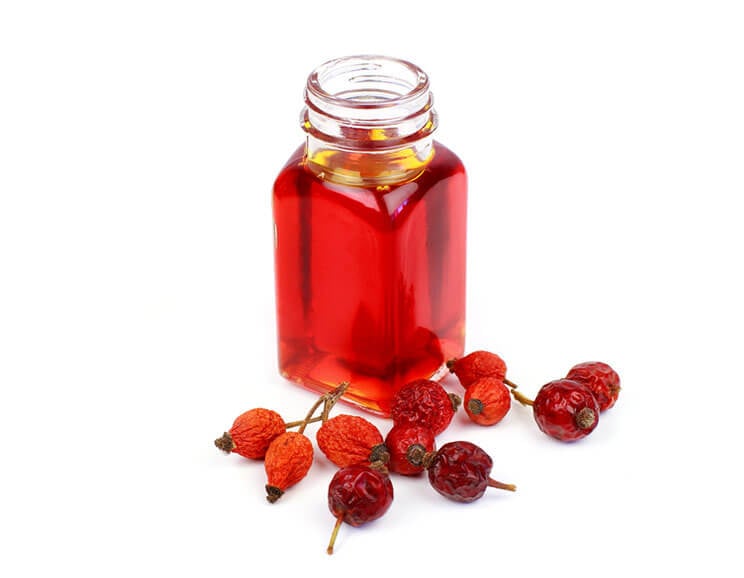
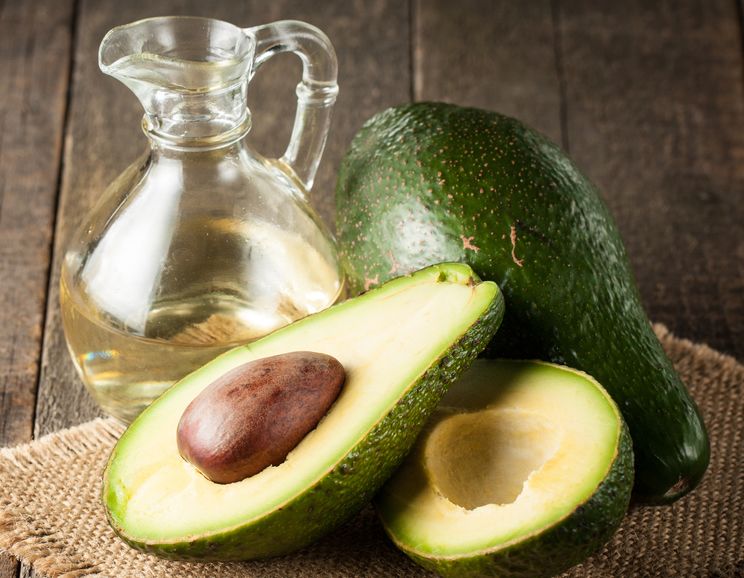
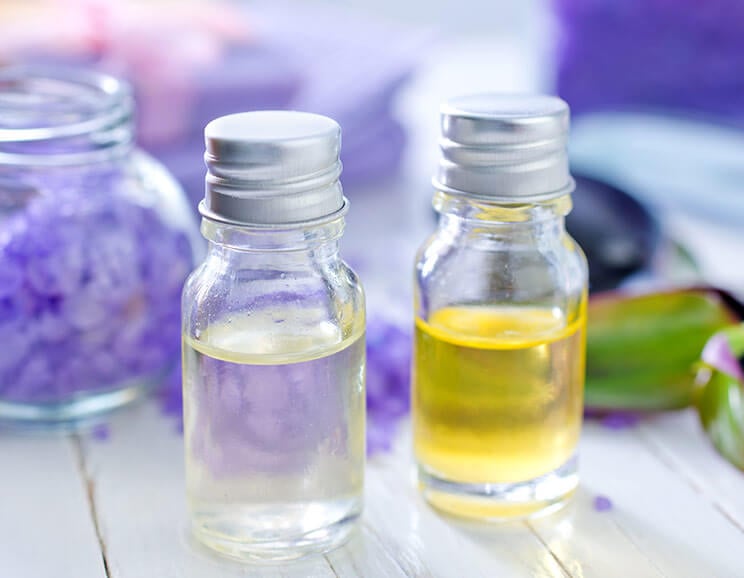
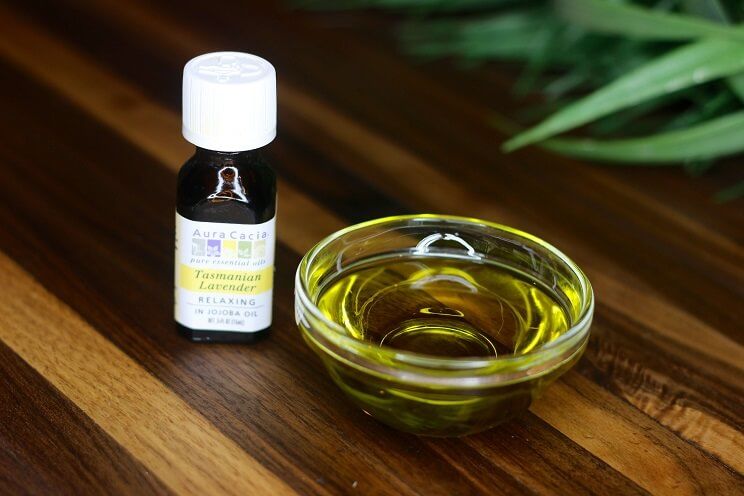


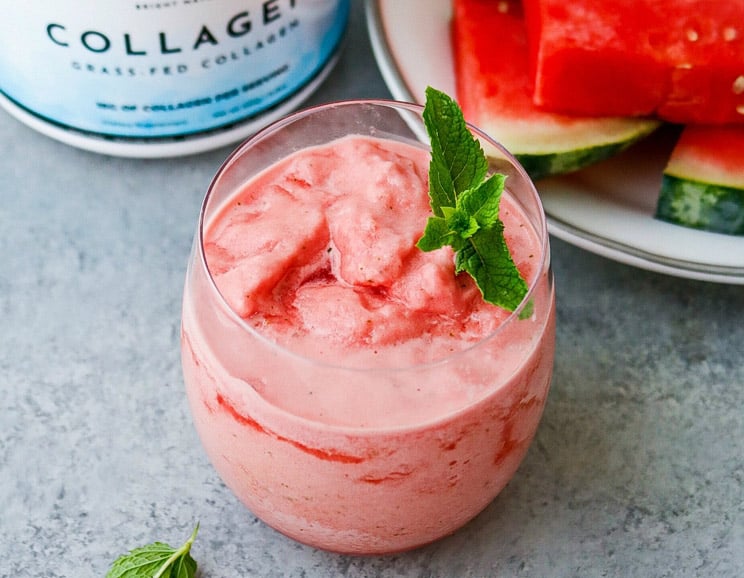
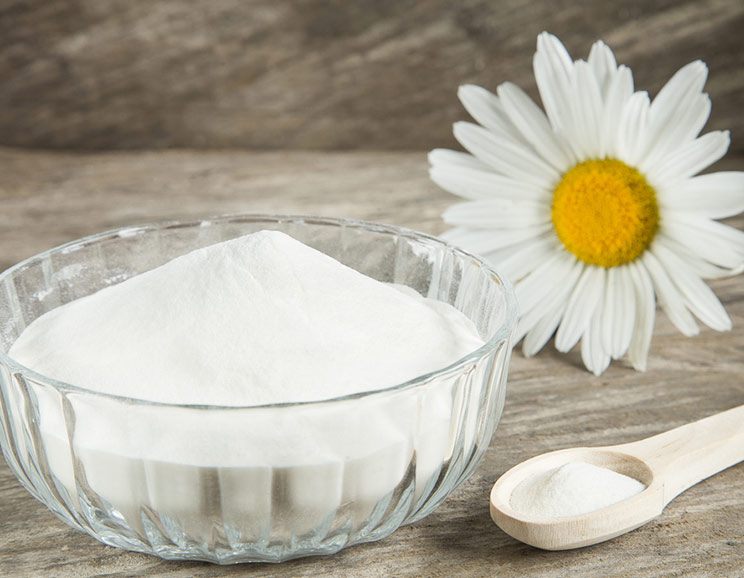

Show Comments